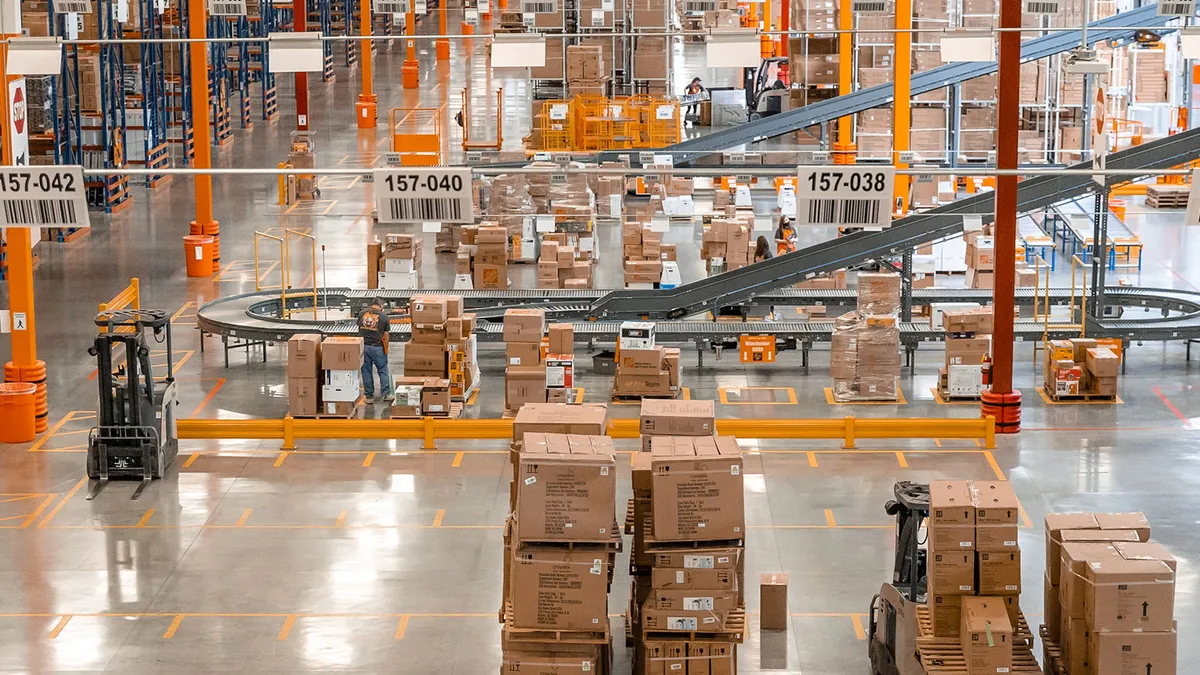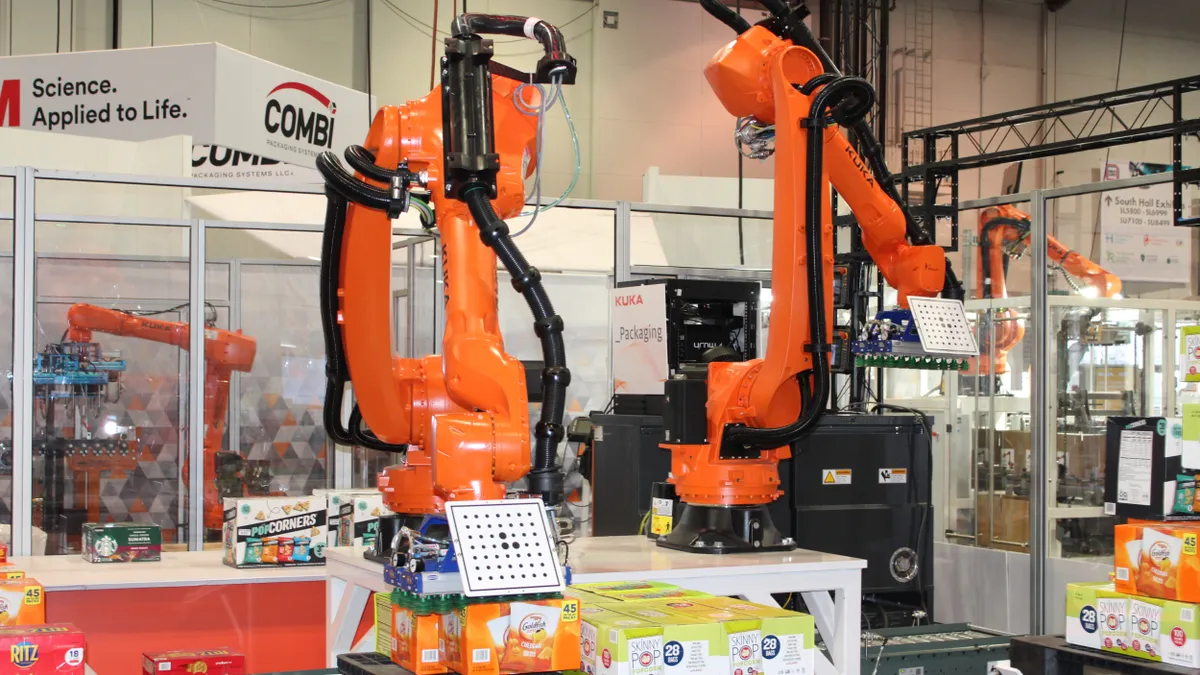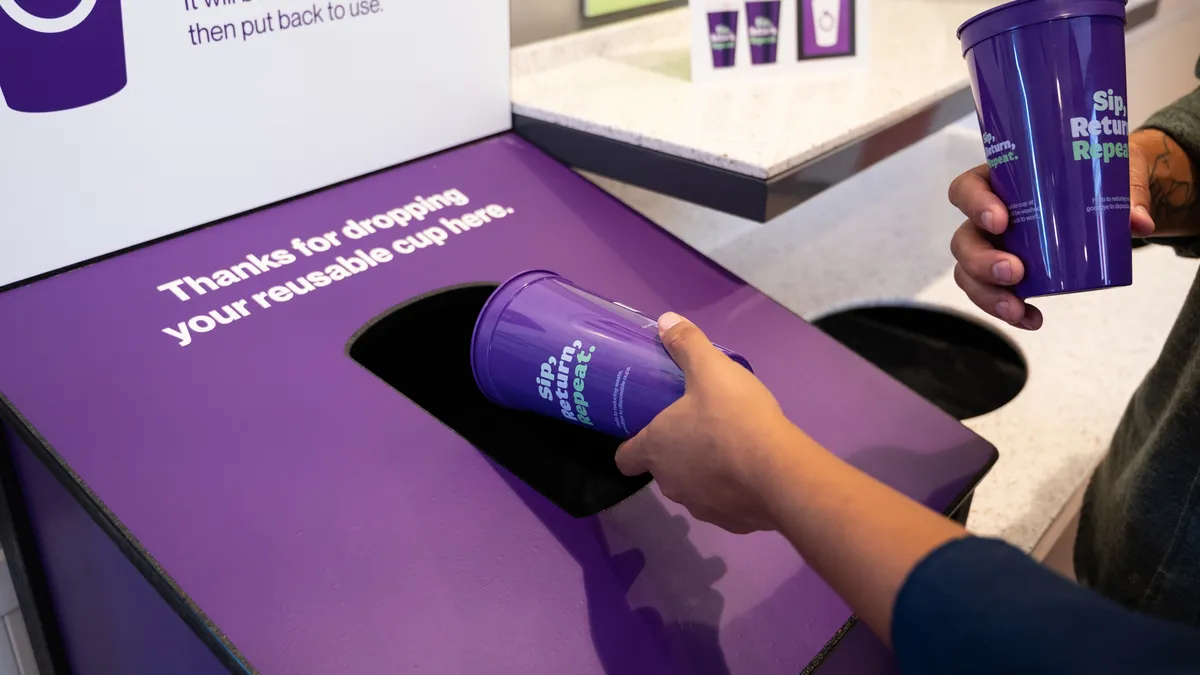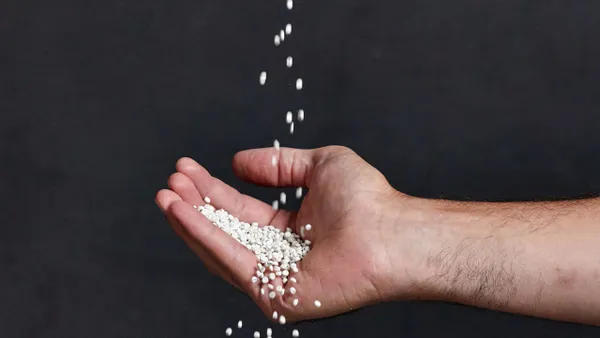Dive Brief:
- The Home Depot has met a 2023 goal to eliminate expanded polystyrene foam and PVC film from packaging for products from its own company brand. Examples include swapping out foam for corrugate corners. It detailed the yearslong effort in an announcement this week.
- The company reported that between 2017 and 2023, it redesigned more than 1,280 packages to decrease size and materials, but the evaluation process began even before then, said Candace Rodriguez, senior director of sustainability.
- Looking ahead, Home Depot wants all private-brand fiber packaging for new SKUs to contain recycled content, or be compostable or recyclable, by the start of 2027. This includes paper, paper board, blister cards, corrugate, molded pulp and paper materials. So far, recycled content has been readily available, Rodriguez said, and the company will “continue to look at expanding those sources to ensure that we're able to achieve our goal.”
Dive Insight:
Embodying the spirit of its former “You can do it. We can help,” slogan, Home Depot said its fiber transformation efforts involved collaboration with both existing and new packaging suppliers.
Removing hard-to-recycle materials from its supply chain required a lot of conversations with its merchants and supplier community, Rodriguez said. In Home Depot’s 2024 ESG report released last month, it shared the example of redesigning the packaging for a private-brand vanity, a project that spanned at least 20 separate vendor partners.
“We sell light bulbs, we sell appliances, we sell toilets. These are products that are prone to damage if they are not secured with the right packaging,” Rodriguez said, hence the years of testing to ensure new packaging is strong enough. “We took our time to do that.”
The Home Depot said the process entailed researching U.S. and Canada recycling infrastructure, communicating goals to suppliers, exploring alternative material options, and creating new or updated designs.
Throughout the process, the company has learned more about packaging sizing that’s needed for different products, and whether a package needs to be shipped upright or can lay on its side.
The Atlanta-based home improvement retailer did not specify what percentage of its overall SKUs are made up private-brand products. “There's still a significant amount of EPS and PVC film that's used in packaging outside of our private-brand packaging. You see it in the marketplace, but we wanted to really drive this innovation and most importantly start with our own private-label products,” Rodriguez said.
For products beyond its own brand, it’s still working with suppliers on how to reduce plastic and hard-to-recycle materials.
Both EPS and PVC fall on the U.S. Plastics Pact’s list of problematic and unnecessary materials.
The company “will continue to be aggressive in this space, where it makes sense, without harming the product or the shipping of that product through our supply chain,” Rodriguez said.
The company’s 2024 report also highlighted efforts to transform hard-to-recycle materials where they’re still in use. The company said that in 2024 it would have an initiative to bale soft plastic from reverse logistic centers to be remanufactured as kitchen and outdoor trash bags, leading to three new SKUs with 20% postconsumer recycled content.
Package rightsizing is also a focus, as it is across the e-commerce industry, including at Amazon and Walmart. Home Depot reported that in 2023, approximately 23 million packaging units were rightsized from projects across more than 280 private-brand SKUs.
The report also details that the 2023 phase-out goal specifically applied to “priority vendors” and “excludes vendor SKUs below a minimum annual sales threshold.” Its packaging goals typically apply to U.S., Canada and online sales. Online sales are growing for Home Depot, comprising approximately 15% of net sales in the most recent quarter, up about 4% year over year.
Lowe’s, a main competitor to Home Depot, said in its most recent sustainability report shared last year that it expected to “make further progress on excluding” EPS and PVC from its private-brand packaging in 2023. It also said it would create a sustainable packaging reference guide for suppliers designing packaging for its private brand products. Lowe’s has goals of making all of its private-brand packaging recyclable, reusable or compostable by 2030. By 2025, it expects all of that packaging to include the How2Recycle label, where space allows; it was 59% of the way there in 2023.













